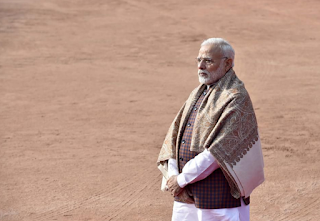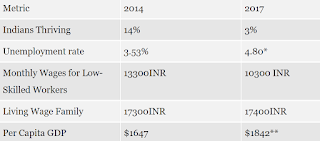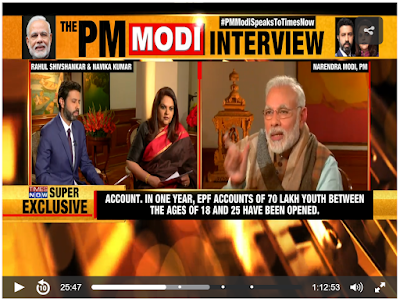The Bank of Japan is getting flak for not announcing it as part of its recent stimulus package. ‘Helicopter Money’ is an idea that is doing brisk rounds in global economic circles.
What is it?
Helicopter money is an idea mooted by Milton Friedman in his paper ‘The Optimum Quantity of Money’ in 1969 for governments looking to lift their economies out of a slump. “Let us suppose that one day a helicopter flies over this community and drops an additional $1,000 in bills from the sky, which is, of course, hastily collected by members of the community. Let us suppose further that everyone is convinced that this is a unique event which will never be repeated.” Friedman’s theory was that the lucky citizens, thrilled with the windfall, would rush to spend. Higher money supply with no immediate change in output, would lift inflation. And improved consumer confidence would eventually prompt manufacturers to increase output and create more jobs, thus giving the economy a steroid shot to get it going.
Why is it important?
In a bid to stimulate growth and fight deflation, governments have effected cuts in interest rates, turned to negative rates and unleashed many rounds of the infamous QE or Quantitative Easing. But GDP growth rates, whether in the US or Eurozone and Japan remain stubbornly low. Hence the recourse to more direct methods, like helicopter money.
Putting cash directly into the hands of consumers, it is hoped, will quickly kick-start a virtuous cycle of consumption that can boost up GDP. This is something that indirect QE, which transferred liquidity to banks in order to step up lending, couldn’t achieve.
Of course, helicopter money, in today’s sophisticated world may not really have Phillip Hammond or Janet Yellen scattering bagfuls of cash from a helicopter. Instead, the British or American governments may decide to give tax refunds or tax credits or even make direct cash transfers to identified citizens. Some devious economists have even suggested pre-loaded smart cards with a certain amount of cash. If citizens don’t spend it within the specified time, the cash will simply disappear!
Why should I care?
Sounds like a great idea! So when will the Indian government take to helicopter money to boost the economy? Alas, with the RBI watching over inflation and deficits like a hawk, this isn’t likely anytime soon. But we Indians can take comfort from the fact that we thought of helicopter money long before others did. MGNREGA paid cash to rural folk for 100 days of guaranteed work. In cases where that money went into benami accounts, that’s a form of helicopter money. On a more serious note, the excise duty cuts on cars and consumer goods announced in 2008-09 after the global credit crisis were a version of helicopter money too.
What about Pay Commission payouts? Well, strictly speaking, that cannot be termed helicopter money as it is recurring, and paid as reward for work. But these payouts can certainly serve the purpose of helicopter money.
The bottomline
Helicopter money sounds wonderful, but it works only when people spend the money. Question is - will they hoard it?
While the developed countries have been fixated during the last decade on ways to put more money in people's pockets to stimulate demand, India without any due diligence decided to go the other way, and freeze out a bulk of its citizens' purchasing power by demonetisation. What was supposed to be a surgical strike against tax cheats and counterfeit currency became an attack on the large informal economy that ran on cash and carpet bombed the whole economy. The evil thinking was that about Rs.5,00,000 crores would not get deposited in banks by the people holding unaccounted money and the bonanza would be used recapitalize the banks saddled with NPA's. But in the end, almost all of the cash came back. There was absolutely no need to demonetize the economy in order to recapitalize banks. It's no coincidence that a new GST, implemented was supposed to create a common nationwide market by removing a complex web of local taxation. But when it became operational in July 2017, the single market became a side show, and the tax itself became an enforcement mechanism debacle. Like in the West, where a decade of monetary adventurism has altered people's portfolio choices and made risky assets frothy, India has reached the same end point, by flying the money helicopter in reverse. Unlike quantitative easing, which is a reversible stimulus for the demand side of the economy, India's cash ban and now the GST are seeking to permanently alter the supply side. An ebullient stock market is merely betting this experiment will succeed. But increasing the speed in wrong direction and expecting desired results is insanity.
What is it?
Helicopter money is an idea mooted by Milton Friedman in his paper ‘The Optimum Quantity of Money’ in 1969 for governments looking to lift their economies out of a slump. “Let us suppose that one day a helicopter flies over this community and drops an additional $1,000 in bills from the sky, which is, of course, hastily collected by members of the community. Let us suppose further that everyone is convinced that this is a unique event which will never be repeated.” Friedman’s theory was that the lucky citizens, thrilled with the windfall, would rush to spend. Higher money supply with no immediate change in output, would lift inflation. And improved consumer confidence would eventually prompt manufacturers to increase output and create more jobs, thus giving the economy a steroid shot to get it going.
Why is it important?
In a bid to stimulate growth and fight deflation, governments have effected cuts in interest rates, turned to negative rates and unleashed many rounds of the infamous QE or Quantitative Easing. But GDP growth rates, whether in the US or Eurozone and Japan remain stubbornly low. Hence the recourse to more direct methods, like helicopter money.
Putting cash directly into the hands of consumers, it is hoped, will quickly kick-start a virtuous cycle of consumption that can boost up GDP. This is something that indirect QE, which transferred liquidity to banks in order to step up lending, couldn’t achieve.
Of course, helicopter money, in today’s sophisticated world may not really have Phillip Hammond or Janet Yellen scattering bagfuls of cash from a helicopter. Instead, the British or American governments may decide to give tax refunds or tax credits or even make direct cash transfers to identified citizens. Some devious economists have even suggested pre-loaded smart cards with a certain amount of cash. If citizens don’t spend it within the specified time, the cash will simply disappear!
Why should I care?
Sounds like a great idea! So when will the Indian government take to helicopter money to boost the economy? Alas, with the RBI watching over inflation and deficits like a hawk, this isn’t likely anytime soon. But we Indians can take comfort from the fact that we thought of helicopter money long before others did. MGNREGA paid cash to rural folk for 100 days of guaranteed work. In cases where that money went into benami accounts, that’s a form of helicopter money. On a more serious note, the excise duty cuts on cars and consumer goods announced in 2008-09 after the global credit crisis were a version of helicopter money too.
What about Pay Commission payouts? Well, strictly speaking, that cannot be termed helicopter money as it is recurring, and paid as reward for work. But these payouts can certainly serve the purpose of helicopter money.
The bottomline
Helicopter money sounds wonderful, but it works only when people spend the money. Question is - will they hoard it?
While the developed countries have been fixated during the last decade on ways to put more money in people's pockets to stimulate demand, India without any due diligence decided to go the other way, and freeze out a bulk of its citizens' purchasing power by demonetisation. What was supposed to be a surgical strike against tax cheats and counterfeit currency became an attack on the large informal economy that ran on cash and carpet bombed the whole economy. The evil thinking was that about Rs.5,00,000 crores would not get deposited in banks by the people holding unaccounted money and the bonanza would be used recapitalize the banks saddled with NPA's. But in the end, almost all of the cash came back. There was absolutely no need to demonetize the economy in order to recapitalize banks. It's no coincidence that a new GST, implemented was supposed to create a common nationwide market by removing a complex web of local taxation. But when it became operational in July 2017, the single market became a side show, and the tax itself became an enforcement mechanism debacle. Like in the West, where a decade of monetary adventurism has altered people's portfolio choices and made risky assets frothy, India has reached the same end point, by flying the money helicopter in reverse. Unlike quantitative easing, which is a reversible stimulus for the demand side of the economy, India's cash ban and now the GST are seeking to permanently alter the supply side. An ebullient stock market is merely betting this experiment will succeed. But increasing the speed in wrong direction and expecting desired results is insanity.












